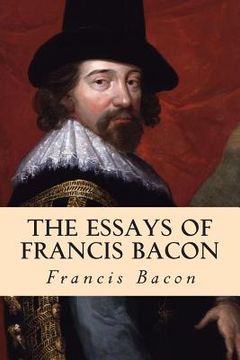Synopsis "The Essays of Francis Bacon (in English)"
Though Francis Bacon considered the Essays "but as recreation of my other studies", he was given high praise by his contemporaries, even to the point of crediting him with having invented the essay form. Later researches made clear the extent of Bacon's borrowings from the works of Montaigne, Aristotle and other writers, but the Essays have nevertheless remained in the highest repute. Francis Bacon (22 January 1561 - 9 April 1626) was an English philosopher, statesman, scientist, jurist, orator, and author. He served both as Attorney General and as Lord Chancellor of England. After his death, he remained extremely influential through his works, especially as philosophical advocate and practitioner of the scientific method during the scientific revolution. Francis Bacon has been called the father of empiricism. His works argued for the possibility of scientific knowledge based only upon inductive reasoning and careful observation of events in nature. Most importantly, he argued this could be achieved by use of a sceptical and methodical approach whereby scientists aim to avoid misleading themselves. While his own practical ideas about such a method, the Baconian method, did not have a long-lasting influence, the general idea of the importance and possibility of a sceptical methodology makes Bacon the father of scientific method. This marked a new turn in the rhetorical and theoretical framework for science, the practical details of which are still central in debates about science and methodology today. In addition to his work in the sciences, Francis Bacon was also a venerable patron of libraries and developed a functional system for the cataloging of books by dividing them into three categories- history, poesy, and philosophy- which could further be divided into more specific subjects and subheadings. Francis Bacon is the first recipient of the Queen's counsel designation and was conferred in 1597 when Queen Elizabeth reserved Bacon as her legal advisor. After the accession of King James I in 1603, Bacon was knighted. He was later created Baron Verulam in 1618 and Viscount St. Alban in 1621. Because he had no heirs, both titles became extinct upon his death in 1626, at 65 years of age. Francis Bacon died of pneumonia, with one account by John Aubrey stating that he had contracted the condition while studying the effects of freezing on the preservation of meat. He is buried at St Michael's Church, St Albans, Hertfordshire.

